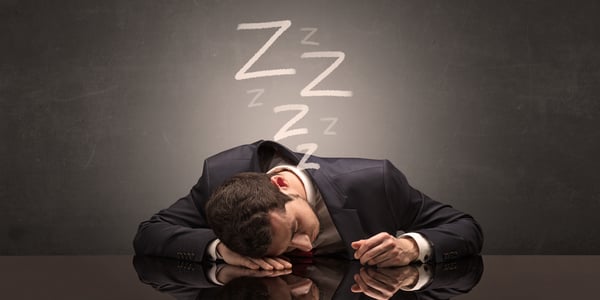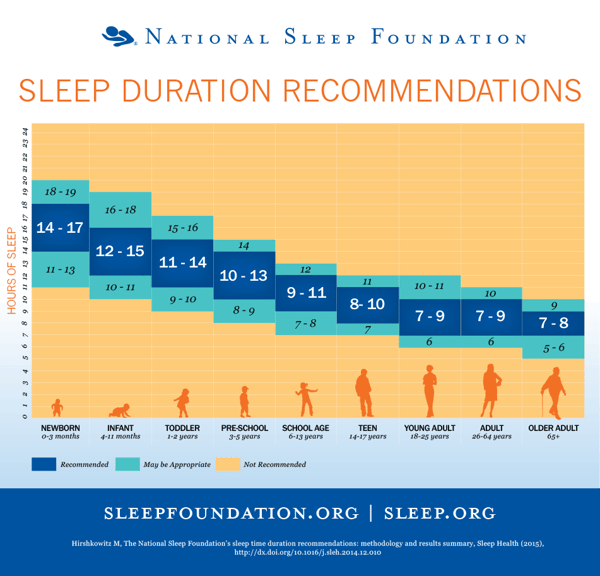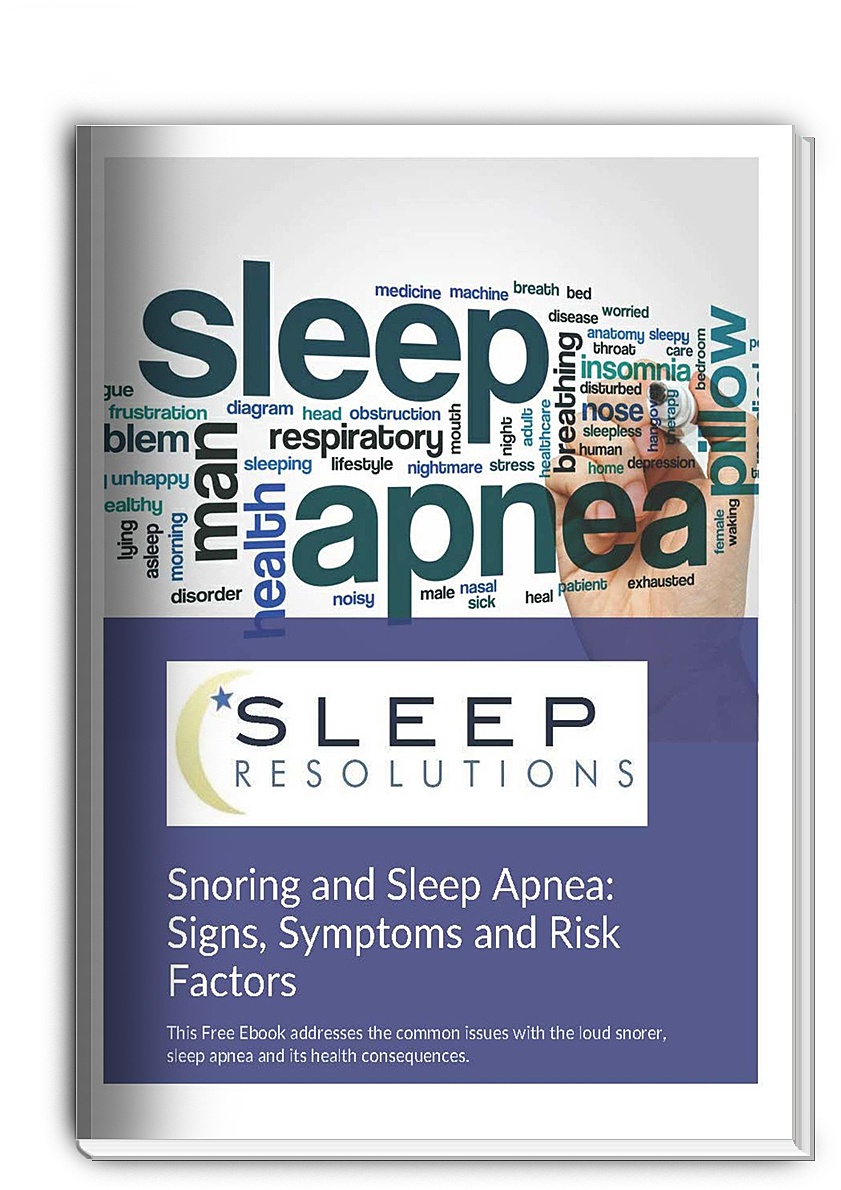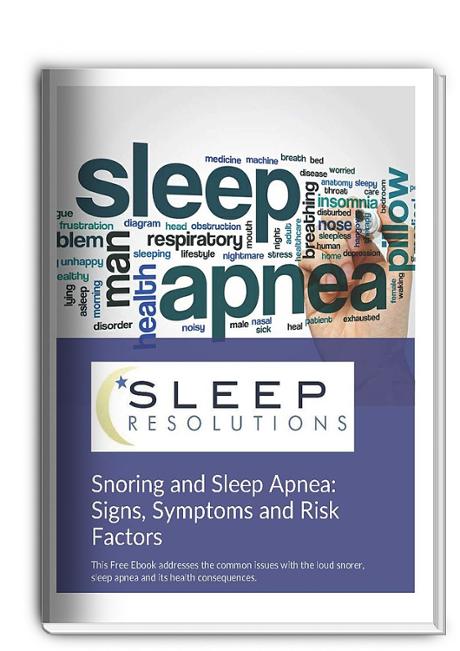
It's easy to accept being tired from day to day. You could be a working parent, or an overloaded college student, or you may be traveling a lot for your job. A family crisis may steal your sleep for several nights in a row, or a project may run behind schedule and require night shifts. There are so many reasons why we all seem to feel sleepy all the time, and many of them come back to a very simple reality:
We're not getting enough sleep at night.
In 2015, the National Sleep Foundation revisited its recommendations for how much sleep we should all be getting (see the chart below). If you've asked yourself, "Why am I sleepy all the time?", the answer might be that you simply aren't sleeping enough.

Sleep: Quantity and Quality Matter
It turns out that the amount of sleep you get, as well as its quality, both impact how refreshed you feel in the morning. Let's take a closer look.
Sleep Quantity
According to The National Health and Nutrition Examination Survey, nearly a third of all American adults sleep 6 hours or less every night, far below the minimum recommendation of 7 hours nightly.
Losing just one hour of sleep a night may not seem like much, but over the course of one week, that one hour grows into 7 hours (or one full night's worth) of lost sleep, contributing to what is known as sleep debt, the unhealthy accumulation of sleep deprivation. Multiply that one night's worth of lost sleep over 52 weeks and you have a pretty serious case of sleep debt which will be hard to pay down.
Sleep deprivation and sleep debt are well known for contributing to multiple health and safety problems. Behavioral ones include:
- irritability
- poor judgment
- attention deficit
- memory issues
- emotional stress
- poor risk assessment
- depression
Physical problems that are the result of sleep deprivation and sleep debt include:
- clumsiness
- physical stress
- immune system dysfunction
- worsened vision
- weight gain
- advanced aging
- cerebral shrinkage
Along with these problems include concerns about performance, such as higher risk for motor vehicle collisions and workplace accidents.
Finally, when chronic sleep deprivation results in sleep debt, the stress this places on the body leads to body-wide, or systemic, inflammation. Systemic inflammation is associated with the development of chronic illness, such as diabetes, cardiovascular disease, stroke, chronic kidney disease, even cancer.
Often, the amount of sleep you get is determined by external factors beyond your control. Obligations to your job or your family can steal hours of sleep from you, for instance. But sometimes, insufficient sleep is the result of choices you make willingly about skipping sleep. For instance, you might:
- Have an active evening social life that shortchanges you a few hours of sleep on a regular basis
- Decide to join the 5 a.m. hot yoga class, but forget to go to bed early to fit in the sleep you would have otherwise normally enjoyed
- Travel by air over several time zones for a family reunion; jet lag will definitely shape your sleeping and waking periods
There are other, more subtle ways that you can rob yourself of sleep quantity. These fall under the practice of sleep hygiene.
Sleep hygiene refers to the circumstances you create for the opportunity to sleep. This could be related to the environment of your sleeping space, or the regularity of your bedtimes and rise times, as well as daytime behaviors that can make it harder for you to get good sleep.
One of the worst things to do right before you go to bed is to check email on your computer, follow social networks on your phone, or play games or movies or read on your backlit electronic tablet.
All of these handheld devices emit blue spectrum light which, when perceived by your brain, automatically switches off certain important brain functions that promote falling asleep.
Insomnia is the most prevalent sleep health complaint that sleep physicians encounter from patients these days. Given the ubiquity of electronics in the bedroom, blue spectrum light emissions from electronics could be called to blame for many people's complaints of insomnia, especially if they struggle to fall asleep at the beginning of the night.
But there are other bad habits worth trying to fix. You may tap the snooze button too often; those added minutes might actually make you feel more tired. Or you might stare at the clock all night, when really you should be sleeping, unaware of time at all.
Even beyond bad habits, however, there are other reasons why sleep can defy even our best intentions. Certain sleep disorders, like insomnia or shift work disorder (described below, in Sleep Quality), can seriously consume sleep time. So, too, can medical conditions like depression or anxiety, breathing disorders, neurological conditions, even pain itself. All of these can wreak havoc on your ability to fall asleep or to sleep enough every night if left untreated.
Sleep Quality
So... what about those who get 8 or 9 hours' rest every night? Are you one of the many who wakes up groggy and tired even after sleeping all night long? There are numerous reasons why you might still be sleepy all the time.
Poor sleep hygiene factors into this as well. Sleep is meant to take place over a period of time and not in small segments. Sleep has a complex architecture. Disruptions to its architecture can significantly reduce your sleep quality.
What about disruptions you can control? A pet you sleep with may wake you up several times a night. An unsupportive pillow, or too much ambient light, or street noise, or an over-warm electric blanket can do the same thing. If your cell phone chimes all night and wakes you up each time, then you are not getting adequate sleep.
There are sleep disorders, too, which can wake you up all night... even if you don't notice you are waking up. People who work odd hours or overnight schedules may suffer from something called shift work disorder, a sleep disorder caused by the practice of flip-flopping rhythms so that sleep happens during the day and wakefulness, at night.
Undetected sleep apnea and snoring are very common problems which lead to broken sleep, as are movement disorders of sleep like restless leg syndrome. What's worse, people with these unchecked conditions may make movements or noise that are disruptive enough to impair the sleep quality of their bed partners.
People with certain medical conditions will find their sleep disrupted all night long, as well. Diabetics may experience broken sleep as a result of changes in insulin levels. Someone with prostate or bladder problems may need to use the restroom several times a night. Heartburn and reflux disease are well known for waking people up from perfectly good sleep. Menopause is famous for waking up women in the middle of hot flashes.
Finally, if you are taking numerous medications, you may not be aware that some of them may be causing your sleep disturbances. This holds true not only for prescriptions, but for over-the-counter medications, vitamins and supplements, and recreational drugs like marijuana.
Caffeine, nicotine, and alcohol also have a role in disrupting sleep architecture. When multiple medications or substances are used, there is also the opportunity for interactions between them to take place which might also reduce your sleep quality.
What can you do?
Starting at square one—getting regular exercise and eating healthy—is always useful. Both can contribute to healthy periods of nighttime sleep and good overall health.
Improving your sleep hygiene is easy and inexpensive, for the most part. Take a look at your sleeping space and habits, then ask yourself, "How could I make my nightly routine more supportive of good sleep?" Start with going to bed at about the same time every night, and waking up at the same time every day. Make sure your bed, pillows, and linens are comfortable and inviting. Review behaviors at bedtime and learn to turn off anything with a backlit screen well in advance of sleep. Invest in some new relaxation routines: making relaxation a priority at bedtime is critical to practicing good sleep hygiene.
Try to find opportunities to get more sleep. If you routinely only sleep 6 hours a night and find you are sleepy all the time during the day, you can:
- Take a short nap once in a while
- Go to bed earlier than usual
- Sleep just a little bit later than usual
Eventually you will begin to feel more rested. It may take you a few days, even weeks, to achieve this, but once you feel refreshed in the morning, you'll appreciate the added energy boost that a full night's sleep brings.
Finally, be aware of the key symptoms of common sleep disorders. Many people who have sleep disorders are unaware they even have them! Here are a few things to look for:
- Trouble falling asleep every single night (taking at least 30 minutes to fall asleep)
- Problems with waking up frequently at night, or prematurely in the morning
- Excessive daytime sleepiness
- Frequent car accidents
- Reports from bed partners or family members that you snore, choke, snort, gasp, or stop breathing during sleep (you may also notice these yourself)
- Morning headaches
- Sore throat or dry mouth in the morning
- Tingling, creepy-crawly, or other uncomfortable or unusual sensations in your arms or legs at bedtime
- Leg or arm movement during sleep that wakes up your bed partner
- Sudden feelings of weakness during the day that happen after emotional episodes like laughing, crying, or fearfulness
- Feeling paralyzed the moment that you wake up
- Reports of sleepwalking, or finding yourself out of your bed with no memory of how you got there
If you or a loved one experiences any of these symptoms, it is important to bring them to the attention of a doctor; they will help you determine if an assessment is called for to identify (or rule out) any possible sleep disorders or other medical concerns.
The good news this: Sleep disorders are treatable! But they can only be treated effectively with the assistance and oversight of an accredited sleep physician.
Interested in a consultation? Contact us at Sleep Resolutions today at one of our two convenient locations in Kansas (Garden City or Dodge City) (620) 271-9400.
Click the image below to get your FREE sleep assessment today!













Leave a comment